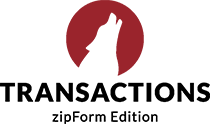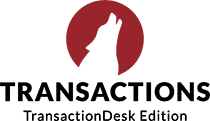
Real estate always has been and always will be a people-first industry. From the people who buy and sell (or rent!) their homes, to the people who work tirelessly to help those buyers and sellers—everyone has a stake in real estate. So it’s no wonder that the interactions between people have always been so essential to the industry.
But as people shift to a digital age, those interactions are changing—and managing them the old-fashioned way has lost a lot of the value it used to hold.
According to studies from the National Association of REALTORS®, 97% of homebuyers used the internet in their house hunts in 2020, and the pandemic has only increased reliance on technology for real estate. To keep up, real estate professionals have shifted to methods like email and social media, with 95% of agents using email and 57% using social media.
Despite the high usage, however, only 27% of agents use customer relationship management (CRM) solutions to help handle these time-consuming communication methods. Many still use spreadsheets, email, and even pen and paper to manage client engagement.
Let’s explore what CRM does for real estate professionals and brokerages, how it improves your client experience, and what to look for in a solution.
What’s a real estate CRM?
Customer relationship management software is designed to give users an organized hub where they can manage leads, clients, deals, marketing, networking—and in some cases, the list goes on.
This is especially useful in the real estate industry because of its reliance on social connections. A real estate CRM becomes a business management strategy, where you can run your entire client experience efficiently and productively.
What does a real estate CRM do for you?
We met with Red Oak Realty—one of the largest independent brokerages in the East Bay in California—to explore the value a CRM should bring to a real estate business. In their search, the team at Red Oak Realty had been looking for a solution that would help them provide for agents, clients, and the community—and help share information on neighborhoods and properties.
That’s a tall order—and in many cases, involves multiple solutions.
By focusing on their business needs and looking for solutions that allowed them to do what they needed to do, Red Oak Realty has been able to turn website visitors into closed deals.
"In today's fast-moving market, it's all about streamlining processes. We've put a focus on accessible tools that help agents better serve their clients.” –Vanessa Bergmark, Owner and CEO, Red Oak Realty
So what should brokerages look for in a real estate CRM?
It should make work easier.
Ideally, a CRM solution will make it simpler for brokers and agents to manage communication. It should be organized, easy to navigate, and convenient to access.
On its own, this organization and ease of access is a massive time (and stress!) reducer. But CRM solutions are typically also designed to help cut redundant and time-consuming tasks from your to-do list. It should automate key aspects of your outreach and nurturing, and help you set up intuitive paths that clients can follow to get the information, help, and resources they need.
This frees you and your agents up to focus on bigger-picture tasks.
It should help you track progress.
CRM solutions are all about managing data, so it makes sense that they would help your brokerage collect and analyze that data. A good real estate CRM will help you track and monitor the movement, pace, and progress of deals—which helps you identify what’s working, what’s not, and what you can do to improve.
Some platforms can even use predictive analysis to project your leads’ next move, which means you can stay one step ahead.
It should help you turn prospects into clients.
Nurturing new leads is the bread and butter of finding and closing deals—and it’s the entire purpose of a real estate CRM. Most will include automated lead nurture to help you cut down on the manual work involved in outreach, and to improve the client’s experience through working with you.
Ideally, your CRM should walk your prospects through every step of the conversion process, from the moment they fill out a form to the day a deal closes and even into post-transaction outreach.
It should make managing listings simpler.
This is where a real estate CRM stands out from a run-of-the-mill CRM. As a real estate professional, you need to be able to manage listings and contacts at the same time—so MLS integrations that help you access key information in your CRM are a non-negotiable.
In some cases, you’ll even have options to create listings from incoming seller leads and promote those listings directly on social media.
What to consider before buying a CRM for your brokerage
If you’re sold on the idea of a CRM, but not sure where to start, try asking yourself these questions.
- Does my brokerage have specific needs or features that I need to look for?
- Do we want an end-to-end platform, or do I need to consider how it works with existing systems?
- Do my agents have insights or opinions on CRM software that I should consider?
- What will training look like with our CRM of choice?
- Can I see how the system works through a demo before we commit?
Now that you have the basics of real estate CRM under your belt, it’s time to think about the difference it could make for your agents and your business. How much time could you save? What would clients think of the experience? And how could it influence productivity?
See for yourself what a real estate CRM could do for you here.


